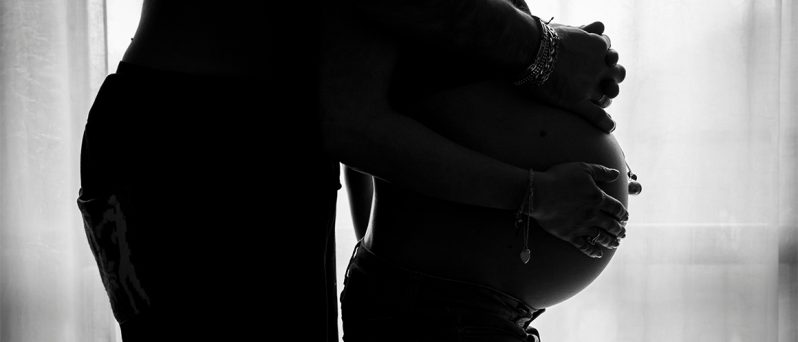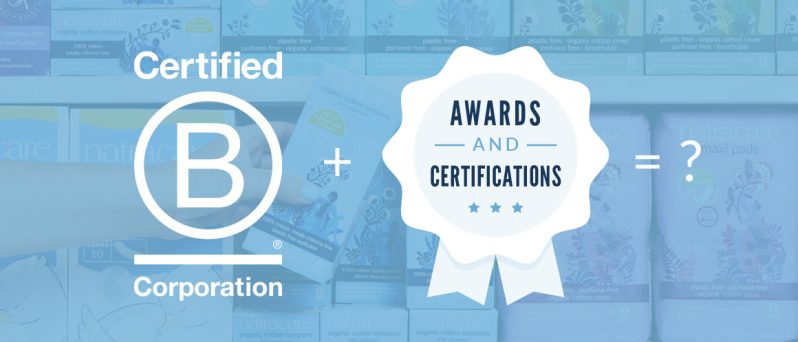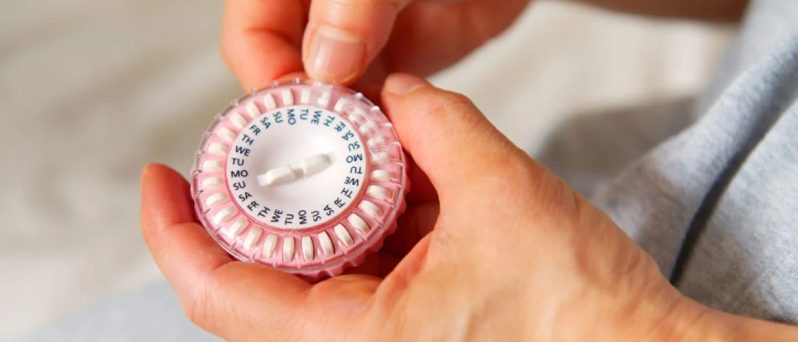And why we need to talk about it.
Stigma around menstruation is deeply rooted in many parts of the world, including India. The Oscar-winning documentary, Period. End of Sentence explores period stigma in India and how many Indians still don’t have access to adequate period products and are made to feel ashamed of something that is so natural.
Here, we discuss why it’s important to address these notions disguised as ‘cultural norms’, and why Natracare are on a mission to destigmatise language, abolish period poverty, and normalise the diverse and unifying experiences of menstruating.
What is Period. End of Sentence about?
The short film Period. End of Sentence, directed by Rayka Zehtabchi, is a powerful depiction of period stigma in India, following a group of Indian women leading a quiet feminist revolution.
The short also focuses on a group of local women in Hapur, India, as they learn how to operate a machine that makes low-cost, biodegradable period pads, which they sell to others at affordable prices. Women can’t buy pads in shops (and the shops won’t sell them) because of shame and public embarrassment. Instead, the women sell the pads in secret, door to door. While the shame attached to menstruation is damaging, selling door to door empowers the women to educate others about menstruation in person, whilst also providing them with a steady income to help the economic future (and safety) of their community.
Where does period shame come from in India?
Culturally in many parts of India, menstruation is considered to be impure and dirty, largely impacted by myths and taboos passed down from generations. According to historian Narendra Nath Bhattacharya, and quoted by scholar Janet Chawla in ‘Mythic Origins of Menstrual Taboo in Rig Veda’, this ancestral ideology is rooted in a Hindu mythological text called the Rig Veda. Chawla argues that menstrual blood has a mythological association with guilt and sin (repeated in other historical texts), which has influenced Indian society and public opinion for centuries. This association of ‘impurity and pollution’ with menstrual blood has led to women even being banned from kitchens, temples, and other public spaces while on their periods.
Shame also stems from the lack of changing facilities and the general lack of education about menstruation and reproductive health in schools and in the home. Adult women may themselves not be aware of the biological aspects of good hygiene practices around periods and instead share their own deep rooted social beliefs to their children.
In the documentary there are uncomfortable scenes of schoolgirls who are too ashamed to even say the word period on camera, and boys who refer to periods as an ‘illness’. Similarly there are scenes of women who do not know what a period pad is and feel embarrassed to even touch one. We are also introduced to a girl who went to the extent of dropping out of school due to the embarrassment of needing to change her napkin or cloth regularly when menstruating.
From India to the UK
We spoke to a member of the Natracare team, Sharna, about her experience growing up as a second-generation Indian immigrant living in the UK, here’s what she said:
“The powerful documentary Period. End of Sentence made me think about my own experiences of having a period as a second-generation Indian immigrant living in the UK. On reflection, not only was the topic never discussed at home, but I was clueless on what period products I could even use and how to use them. Thankfully, this was loosely taught at schools in the UK, but the embarrassment associated with changing your pad or tampon in school toilets was real, and I was still carrying this guilt and shame into my own home.
After addressing this problem more recently to my parents, they realised the silence (and lack of guidance on how to even approach the matter) was due to how they were raised. The lack of openness and acceptance associated with menstruation had been passed on by their parents who had experienced this in India. So, unless someone breaks the stigma attached to these cultural and generational norms at home, we’re going to carry on the cycle of embarrassment, shame, lack of education and even fear to younger generations. I understand silence around the topic isn’t just associated with culture. Arguably this is a generational problem too, including in the UK. Thankfully, the stigma is starting to be addressed in recent years, and it’s about bloody time.”
Of course, the problems are not unique to India. Period stigma and taboo is a present problem across the globe. This embarrassment perpetuated can even hold people back from education, jobs and much more.
Breaking taboos
Influencers and brands around the world are using the power of social media to normalise talking about periods, reiterating the message that they are natural, certainly not dirty and nothing to be ashamed of. Natracare’s collaboration with influencer Jess Megan went viral and caught the attention of the press for a reason – as did Dame’s empowering image of Demi Colleen on a London bus. Society is not used to seeing these types of images, but we think it’s important to be. There is nothing wrong with seeing someone wearing a pad or a tampon, it’s not provocative or gross – and anyone who supports the narrative that it is, is simply feeding the stigma crisis.
Some wonderful charities like City to Sea are giving lesson plans and more extensive education nationwide in primary and secondary schools. They are providing unbiased information on all products available and the social and environmental contexts of menstruation. This is part of their Rethink Periods campaign, which Natracare are excited to be a part of too. With these resources, teachers will be able to equip young people with the tools to understand menstruation and feel prepared and positive about changes in their lives.
What can you do to smash period stigma?
The more we share and expose ourselves to these types of images and conversations (online and in day-to-day life), the more we exert the message that ‘it’s okay to talk about periods’ – which is vital for systemic change in society.
If you’re a parent and wish to have discussions about period health to your children or teenagers at home, Natracare provide a full range of resources and information here on the blog to keep you informed on a range of topics to do with menstruation, wellness, parenting and more.
There are also many charities you could support that are doing wonderful things to abolish period poverty and stigma around the world, some of them include:
Action Aid – Campaigns to end period poverty and share period education around the world.
The Pad Project – Through innovation, education, and advocacy, The Pad Project aims to help move towards a world where menstruators feel empowered in their bodies.
Free Periods – Free Periods is a not for profit organisation fighting to ensure that no young person has to miss out on their education because they menstruate.
Bloody Good Period – Provides menstrual products and education to asylum drop-in centres.
Periods should be normalised from a young age, after all they impact around half of the population for a large portion of their lives, so why hide away from it? Having open conversations about periods is the first step – and we hope you join us in our mission to abolish stigma and shame once and for all.
Read more:
Janet Chawla, Economic and Political Weekly, 1994 – The Mythic Origins of the Menstrual Taboo in the Rig Veda
Wikipedia – Period. End of Sentence.









